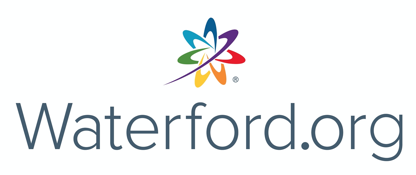4 Key Differences Between IB and AP Classes

There are international schools in Singapore that present their students the chance to earn an International Baccalaureate (IB) Diploma, while other schools offer Advanced Placement (AP) classes. However, there are very few academic institutions that offer both options to their students. As such, for many incoming high school students, their choice of school can depend on whether or not the academic institution offers the specific program that they want to take.
But what’s the difference between an IB Diploma and AP credits? What exactly are students missing out on if they choose an IB-focused institution over a school that’s well-known for its AP classes and vice versa? If you’re an incoming high school student yourself or if you’re a parent of one, read on to find out the key differences between these academic programs and to determine if choosing one of the top IB schools in Singapore that also offer AP classes might be more in line with your needs.
What Is the International Baccalaureate Diploma Programme?
The IB Diploma Programme is part of the continuum of four programs of education that are overseen by the Switzerland-based International Baccalaureate Organization. These programs are offered by IB-accredited educational institutions and are specifically designed to help students develop their critical thinking skills and to mold them into productive global citizens. The foundation for the program was developed in the 60s and 70s, and many countries started recognizing the IB Programmes between the 70s and the 80s. These days, more than 5,400 schools offer IB Programmes in 159 countries.
What Is the Advanced Placement Program?
Developed by the US-based College Board, AP is an academic program that enables students to earn college-level credits while they’re still in high school. It is designed to prepare students for college education by improving their academic competency. At the end of the course, the students must take assessment exams, which are the only basis for their grades.
Here are the main differences between the IB and AP programs:
Subjects Taken
The IB Programmes is more holistic, while AP classes are focused on particular subjects. Students who are enrolled in the IB Diploma Programme must complete 6 areas of study to earn their diploma. These are mathematics, sciences, the arts, language and literature, language acquisition, and individuals and societies. At the same time, students need to complete the Diploma Programme’s 3 core subjects, which are the theory of knowledge (TOK), creativity, activity, service (CAS), and the extended essay. The program can be quite demanding, and IB students must learn how to manage their time so that they can balance their academic and personal responsibilities.
Students who want to earn AP credits have the option to choose among dozens of college-level classes, but they typically take between 1 and 3 AP classes in a given school year. Often, students take AP classes that will enable them to earn advance credits when they enter university or rigorous subjects that can improve their college applications.
Grade Levels
Advanced Placement classes are available only to students who are already in high school or those in Grades 10, 11, and 12. In comparison, the IB Diploma Programme is taken on by Grades 11 and 12 students or those between 16 and 19 years old. If they are able to complete the curriculum, they can earn their IB Diploma. Take note, however, that there are also IB courses that are aimed toward students that belong to lower grade levels. These are the Primary Years Programme (PYP) for students aged between 3 and 12 years old, and the Middle Years Programme (MYP) for students between 11 and 16 years of age. There’s also the Career-Related Programme (CP) that focuses on the development of personal and professional skills for the workplace.
Assessments
Another big difference between the IB and the AP programs is how their assessments are conducted. Before they can take the IB final exams, students must first be registered in the IB Programmes. About 70 to 80% of a student’s final grade for the course will be taken from their final exam. On the other hand, students don’t necessarily have to sign up for AP classes in order to take AP exams. Still, most schools require their students to take AP classes so they can adequately prepare for and have a better chance of earning good scores in their AP assessments.
Use in College Applications
To be clear, colleges and universities do not have particular preferences between IB and AP. Most institutions of higher learning recognize both academic programs. Depending on where the student is planning to study in the future, however, they may find that one academic program is more popular or accessible than the other. Collectively, over 1.95 million students are taking IB courses across 4 different program levels. In comparison, in 2018, more than 1.4 million public high school students in the United States took at least 1 AP class, and a total of 4.22 million AP exams were completed that year. If a student is aiming to enroll in a college or university in the US, for example, they may find that more students there are using their AP credits for their applications. Still, an IB Diploma will have just enough merit for those who are planning to study in the US or in universities in other parts of the world.
It’s possible for students to take the IB Diploma Programme and enroll in AP classes at the same time if their school offers both programs. Stamford American International School in Singapore, a recipient of the 2021 Singapore Education Awards, presents this option, for one. Before choosing one over the other or choosing both, though, students must assess their capabilities and make sure that they are capable of fulfilling their academic responsibilities without allowing themselves to burn out in their final years of high school.






